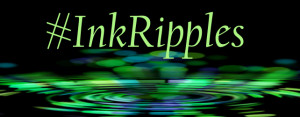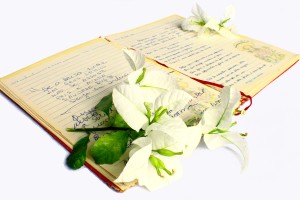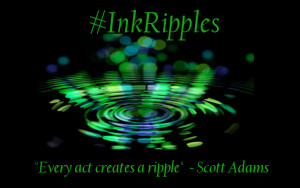When I started writing ELIXIR BOUND many, many moons ago, I never intended to write a novel with feminist themes. I set out to write a fantasy adventure about two sisters with a structure modeled on the there-and-back-again journey of THE HOBBIT (a very non-feminist book!). Being the third of five children and a woman, it was important to me that the guardianship of the Elixir wasn’t passed down to the firstborn or a son, but I didn’t necessarily think about it in terms of feminism as I wrote the book.
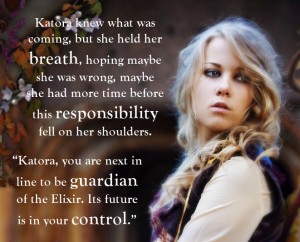 It was only after I finished the first draft that I realized that I had created feminist characters, a feminist mythology, and a general feminist worldview.
It was only after I finished the first draft that I realized that I had created feminist characters, a feminist mythology, and a general feminist worldview.
At one point in an early draft, I had an older, male character–Hirsten’s father–in a brief scene question the decision to let Katora, a young woman, lead the quest to find the secret healing Elixir. He wasn’t questioning her abilities as leader, but the fact that Katora’s father was comfortable letting her venture into the dangerous Faway Forest. It stemmed from the fact that he only had male children and young women seemed a bit of a mystery to him.
I remember that as I wrote that scene, something about it wasn’t sitting well with me. I couldn’t pinpoint what the problem was until I had a whole draft, and then I quickly realized it didn’t fit in with the worldview I had created in pretty much every other aspect of the story. The world of ELIXIR BOUND wasn’t a place where the gender of a person was a reason to question whether or not they should do something. And it was only then that I was able to consciously recognize the type of world I had created.
The Greater Peninsula is ruled by Mother Nature, an unseen goddess character, whom Katora often refers to in dialogue as the “Great Mother” in way that in our world would probably be considered blasphemy (though it’s okay in her world). A young women leads the quest to find the secret ingredient for the Elixir, and the other women on the quest, though different, are certainly as worthy as any of the male characters, and believe themselves to be so. And so do the male characters…all of them (once I got rid of that rogue scene with Hirsten’s father). The external antagonist is called a witch, but she is really a minor goddess and has three male characters as her henchmen. No shortage of feminism there.
I suppose my own feminist ideas bled into the world I was creating all of their own accord. Once I was able to take a step back from the work and look at what I had done, it clicked that this was the way it was supposed to be. It’s my world, right, so why shouldn’t it have a more idealized version of women’s rights? I’m not saying it’s a perfect world or that I represent feminism in a perfect way, but it sure filled a need in me to create a world that didn’t paint someone like me in an inferior way.
I’ve read a lot of fantasy, and a whole lot of YA fantasy. Adult fantasies and their portrayal of women has generally been a disappointment; I know there are exceptions to this, but as a whole the genre is seriously lacking. There are many amazing female characters in YA fantasy, too many to list here (but for a sampling, Katsa from GRACELING, any of Tamora Pierce’s female characters, Alina from the The Grisha series, and Elisa from the Fire and Thorns series). The thing about a lot of these awesome female characters is that they often are the outliers: women doing things that men usually do or bucking against a world with inherent sexism. (Again, I recognize I’m generalizing here and that there are exceptions to this, but I’m talking about the greater picture I’ve observed in fantasy.)
So it came as a surprise to me that my world might be considered unique. I didn’t really think of it as such (I mean, everything has been done before, so I never consider anything I do as even remotely close to unique), but after thinking about it and noticing the trends in what I’ve read, I was like, “Huh. Maybe I’ve got something slightly out of the norm here.”
Then I thought, “Well, isn’t that kind of sad.” Even in our imaginary worlds, we can’t seem to break out of the sexist mold that we are pegged into in our real world. Even when we have dynamic, interesting female characters that pass the Bechdel Test, we too often put them in a patriarchal world, or worse a sexist one, or worst one that normalizes violence against women. (Seriously, just Google “sexism and fantasy” for a whole slew of articles about the topic.)
I’d love to read more fantasy books with a feminist outlook and not just the so-called “strong” female characters. So please throw some recommendations out there, and we can work on bringing more attention to fantasy books with feminist worlds.
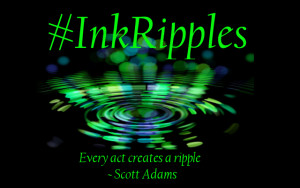 #InkRipples is a monthly meme created by Katie L. Carroll, Mary Waibel, and Kai Strand. We pick a topic (there’s still time to add to the March topic of feminism), drop a ripple in the inkwell (i.e. write about it on our blogs), and see where the conversation goes. Be sure to check out Kai’s and Mary’s posts this month. We’d love to have you join in the conversation on your own blogs. Full details and each month’s topic can be found on my #InkRipples page.
#InkRipples is a monthly meme created by Katie L. Carroll, Mary Waibel, and Kai Strand. We pick a topic (there’s still time to add to the March topic of feminism), drop a ripple in the inkwell (i.e. write about it on our blogs), and see where the conversation goes. Be sure to check out Kai’s and Mary’s posts this month. We’d love to have you join in the conversation on your own blogs. Full details and each month’s topic can be found on my #InkRipples page.
 There are certain movies that when I’m flipping through the channels and happen upon them, I just have to watch (at least for a few minutes). They’re not in any certain genre; some of them are award winners; others of them are, well, not. I’m not an old-movie buff, so they’re all from my lifetime.
There are certain movies that when I’m flipping through the channels and happen upon them, I just have to watch (at least for a few minutes). They’re not in any certain genre; some of them are award winners; others of them are, well, not. I’m not an old-movie buff, so they’re all from my lifetime.